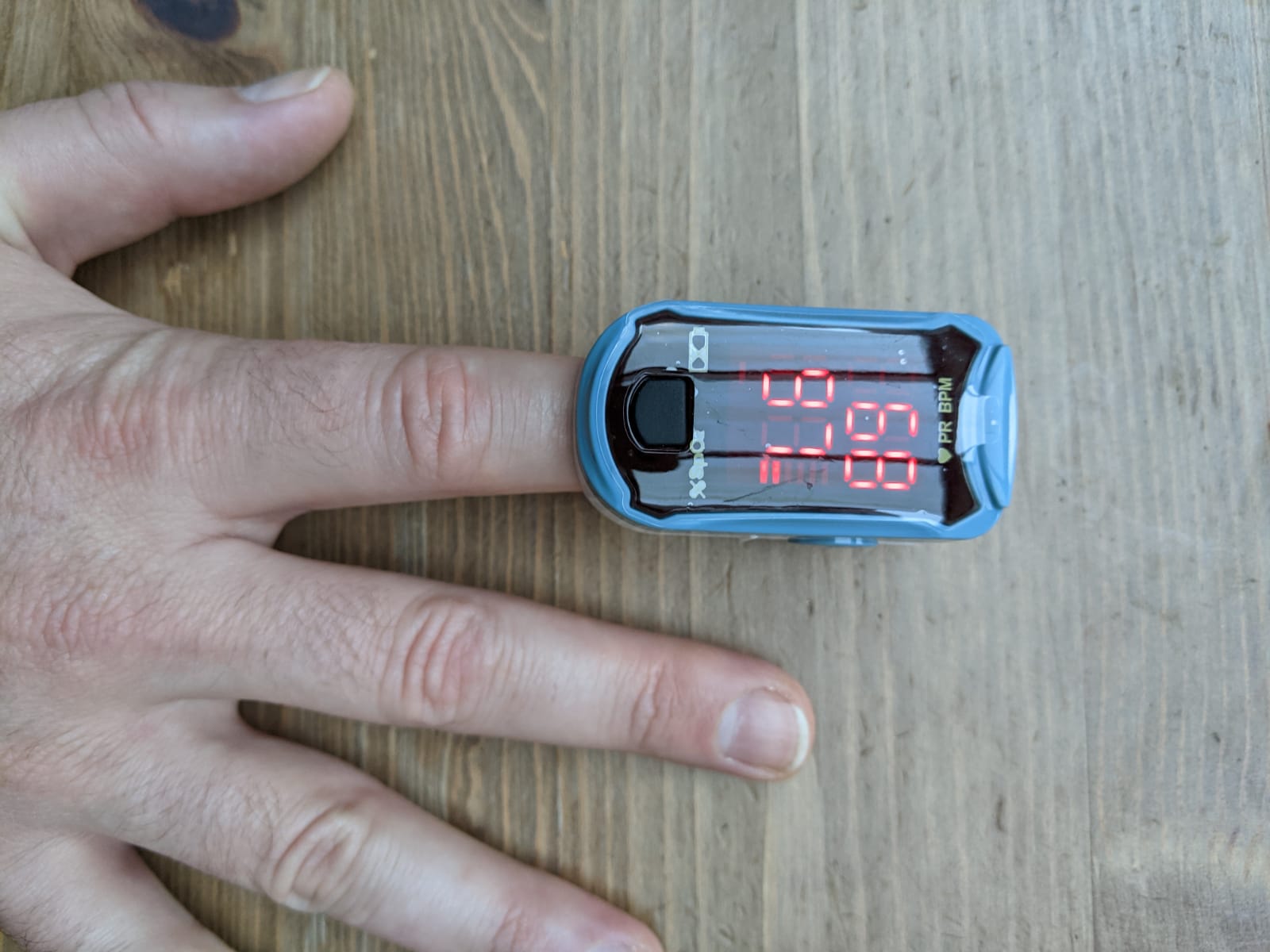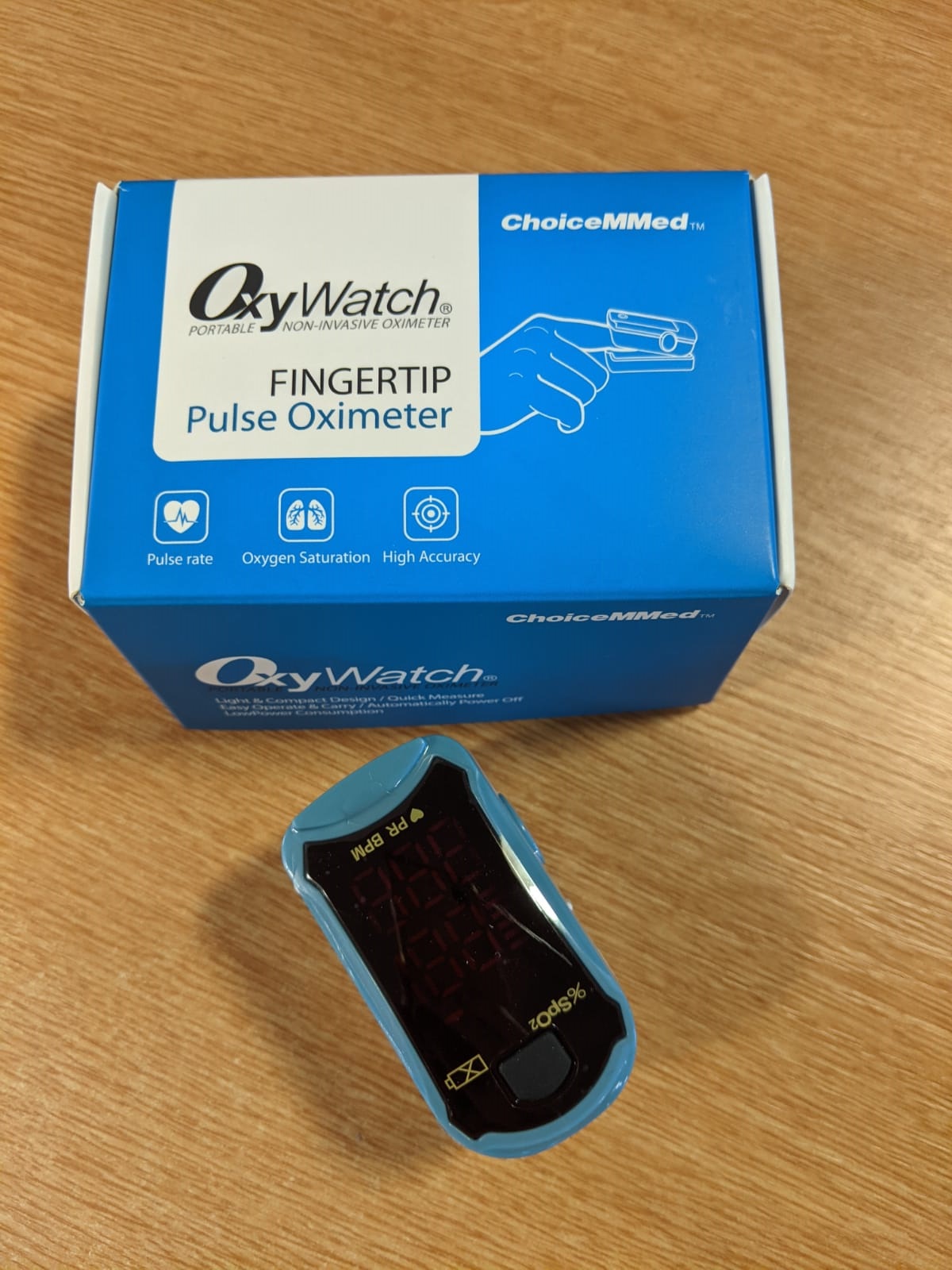People with Covid in Devon, who are over 65 or are clinically extremely vulnerable, are being encouraged to ask their GP about using a potentially life-saving device at home to check their blood oxygen levels are not getting dangerously low.
Under a new NHS scheme called Covid Oximetry at Home, eligible patients can be given a pulse oximeter –a small and simple device that measures levels of oxygen in the blood – to use in the comfort and safety of their home during the first 14 days of symptoms.
The service is available to patients who have coronavirus and are symptomatic, and are over 65 or on the clinically extremely vulnerable (shielding) list, including people living in care homes.
One of the dangers of coronavirus is that it can cause levels of oxygen in the blood to drop dramatically without any obvious symptoms, such as shortness of breath of feeling very unwell – known as silent hypoxia.
This can result in patients going to hospital too late to be treated effectively, sometimes leading to death. The device acts as an early warning system, providing readings that tell the user if blood oxygen levels are getting dangerously low.
By regularly monitoring oxygen levels, it can be easier to spot if coronavirus symptoms are getting worse and identify if someone needs treatment or support.
High-risk patients who contract coronavirus are provided oximeters by their GP. Patients use the small medical device, which is put on the tip of the finger, to measure their oxygen saturation levels three times a day.
Dr Emma Funnell, a GP at Chilcote Surgery in Torquay, has provided oximeters to several patients in the past few months.
Emma said: “The pulse oximeter is a simple tool to use but it has the potential to save lives, reduce complications and avoid patients being admitted to hospital.
“One of the dangers with coronavirus is that patients can deteriorate very quickly without any obvious symptoms. This small device helps us to monitor patients safely at home so we can give them the care they need.
“I encourage anyone who has coronavirus and is over 65 or on the shielding list to talk to their GP about getting a pulse oximeter.”
Pulse oximeters measure blood oxygen levels by transmitting light through a finger –they are more accurate than smartwatches or phones which make less accurate readings by reflecting light off the skin.
Patients record their results using a smartphone app, web portal or paper diary, with normal oxygen levels between 95 – 100 per cent. Individuals whose levels drop are given clear clinical advice from the NHS on what to do, which may include contacting their GP, calling 111 or 99, or attending A&E.
Among those to have used the service is delivery driver Barry Bishop, 54, of Okehampton, who experienced breathing problems after testing positive for Covid in February.
“It’s very simple to use and I was taking readings on a daily basis after my practice recommended it to me. They explain that if the reading goes below a certain level to get in touch.
“One day, the reading dropped and I was having difficulty breathing so I called upand was admitted to hospital in Exeter. I was in for five days and was on oxygen.
“Without the device, you would not know your oxygen levels are dropping so it may well have saved my life because it acts as an early warning system. I would definitely recommend using one.”
Barry is continuing to monitor his levels using the oximeter as he continues his recovery at home.
Margaret Butler, 76, of Dawlish, also used the device in February after her local GP practice suggested it. She said: “I would 100% encourage people to use it – it gives reassurance and peace of mind that you will know if something is going wrong and you need help.
“It’s not complicated and I entered the readings via an app on the iPad which was simple to download.”
If, after 14 days of the onset of symptoms, patients show no signs of deterioration with coronavirus, they will be appropriately discharged from the service and given advice on returning the oximeter safely, and how to continue supporting themselves at home.
NHS Volunteer Responders are on hand to support the service by delivering oximeters to people’s homes where needed.
Patients are encouraged to safely and promptly return oximeters so they can support the NHS, other patients and help minimise the environmental impact.
More information is available on https://myhealth-devon.nhs.uk/local-services/covidoximetry-home-co-h
For more information about looking after yourself at home visit the NHS website:
https://www.nhs.uk/conditions/coronavirus-covid-19/self-isolation-and-treatment/.

You can join us on our social media pages, follow us on Facebook or Twitter and keep up to date with whats going on in South Devon.
Got a news story, blog or press release that you’d like to share or want to advertise with us? Contact us





























